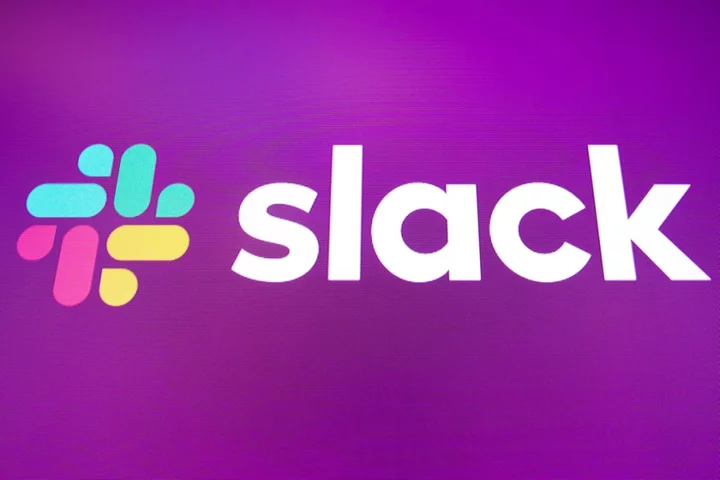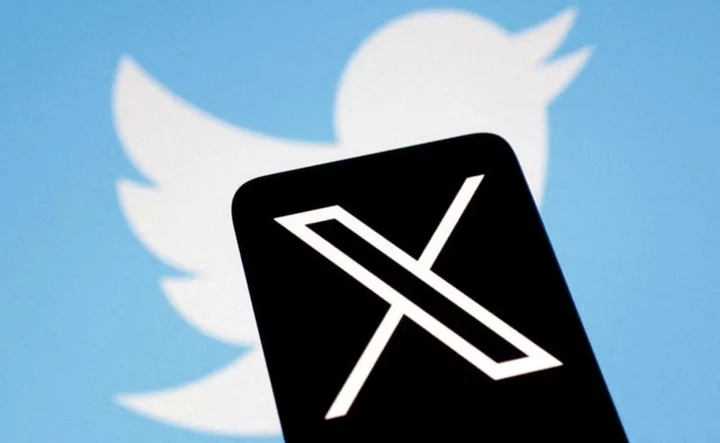
‘We are broken’: Armenia looks to technology to rebuild
Just two weeks after fleeing his home with barely more than the clothes on his back and the phone in his pocket, 23-year-old Ashot Gabriel is at a tech conference promoting one of the last things he has left: his startup. He is one of more than 100,000 ethnic Armenian refugees who were forced out of Nagorno-Karabakh in late September when Azerbaijani forces retook control of the breakaway enclave. Alongside his two brothers – who evacuated in a single car with their parents and a grandparent on 28 September – Gabriel is now attempting to start a new life from temporary accommodation in Armenia’s capital of Yerevan. “We lost our property, but we also lost ourselves,” he says. “We have lost our previous lives. We are starting everything from scratch.” His online marketing startup, Brothers in Business (BIB), was offered a last-minute stand at the DigiTech Expo, with organisers hoping that technology will help offer a solution for the country. As a landlocked nation lacking the natural resources of its historically hostile neighbours, Armenia’s nascent tech industry is seen as a way to achieve sovereignty and future stability in the long term, while also assisting with the humanitarian crisis in the short term. The country was once a tech hub in the region – one of the world’s first computers was built in Armenia – but much of Armenia’s talent left following the collapse of the Soviet Union in the early 1990s. A new scene emerged when émigrés returned to the country after finding success in Silicon Valley, establishing the country’s internet network and providing a foundation for startups to emerge. There are now an estimated 300 pre-seed-stage startups in Armenia, and around 100 seed-stage startups, in fields ranging from quantum computing to electric bikes. “We have this vision: Tech is the ultimate direction that will help Armenia to succeed,” says Narek Vardanyan, CEO of Prelaunch.com, whose company acts as a platform to help local startups establish themselves on the market. “We are landlocked, we have no natural resources. All we have is talent. And our only way we can develop is technology,” he says. “We don’t have a backup plan. There is no Plan B. We are betting everything on technology.” Armenia’s most successful startup so far is Picsart, an online photo editor that has grown to become the country’s only unicorn – a company with a valuation north of $1 billion. Picsart is among those offering their resources to help refugees, fast-tracking the launch of an educational program that will be offered for free to refugees and war veterans, training and reskilling them in everything from machine learning to graphic design. Hayk Sahakyan, a creative director at Picsart, says there has been a “huge number” of people interested so far, including children. This idea of building up Armenia’s tech industry through education can be found through two privately funded initiatives that are providing free courses in STEM subjects to tens of thousands of young people throughout the country. The first is TUMO, which provides free supplemental education to 12-18 year olds in creative technologies, ranging from game development to music. Since the first TUMO centre opened in Yerevan in 2011, dozens of centres have sprung up throughout Armenia and the rest of the world, including hubs in Berlin, Paris and Los Angeles. One of its six core centres and three smaller “Box” centres had to be abandoned during the Azerbaijani offensive in Nagorno-Karabakh last month. “External circumstances can literally kill us. But whenever anyone asks me whether Armenia has a future, it’s here,” says Zara Budaghyan, head of communications at TUMO. “Technology has the potential to provide a more stable economy, but also better lives. International support has been lacking. We need to rebuild by ourselves. We are broken. But this gives us something to believe in.” The second educational initiative is a network of technology, science and engineering laboratories set up in rural communities, offering children from 10-18 free after school classes. Established by UATE – a business association that also runs the DigiTech Expo – several of the labs in Nagorno-Karabakh also had to be shut down in September. UATE chief executive Sargis Karapetyan, who grew up in the region, says around 200 of his relatives were among the refugees. Karapetyan considered cancelling the DigiTech conference, saying there is still a deep distrust of Azerbaijan. There are fears that the annex was only part one. The next stage, which US Secretary of State Antony Blinken believes could happen “within weeks”, could be an invasion to establish a land corridor between the two parts of Azerbaijan. When asked what prompted the decision to persevere with the tech conference despite personal tragedy and the threat of further chaos, Karapetyan replies: "Technology will save the world.” Read More Scientists receive powerful ‘radio burst’ that travelled billions of years Mark Zuckerberg uses Meta’s new AI Ray-Bans to braid daughter’s hair Solar energy is set to eclipse fossil fuels as world passes ‘tipping point’ Scientists receive powerful ‘radio burst’ that travelled billions of years Mark Zuckerberg uses Meta’s new AI Ray-Bans to braid daughter’s hair Solar energy is set to eclipse fossil fuels as world passes ‘tipping point’
1970-01-01 08:00

Google Is Latest to Pull Out of Web Summit Over Israel Controversy
Alphabet Inc.’s Google joined a growing list of companies and investors bowing out of the Web Summit technology
1970-01-01 08:00

Bitcoin Climbs Back Above $30,000 Before Latest Grayscale Ruling
Bitcoin topped $30,000 for the second time this week on growing expectations that another favorable court action raises
1970-01-01 08:00

Mark Zuckerberg shows off Meta’s new AI Ray-Bans, using it to braid daughter’s hair
Meta chief Mark Zuckerberg showed off the company’s new artificial intelligence-powered Ray Ban smart glasses in an Instagram post where he uses the technology to braid his daughter’s hair. In the video, the Meta boss asks his Ray-Bans, “Hey Meta, how can I make a braid?” The AI in the smart glass then seemingly guides Mr Zuckerberg through the steps as he braids his daughter’s hair. He then proceeds to take a photo of the braid and captions it “Finally learned to braid. Thanks, Meta AI” to send his wife. “Hey Meta, send a photo to Priscilla on WhatsApp,” Mr Zuckerberg commands the glasses. The smart glasses, made in collaboration with Ray-Ban, were released last month at Meta’s Connect event. The AI glasses feature a camera that can record, and speakers in the glasses’ arms. Meta envisions the glasses to help wearers move between “virtual and real worlds,” to help them experience the “metaverse” around which the company has organised. The latest version of the smart glasses cost £299 or $299 and brings with it improved cameras, a lighter design, and new features like livestreaming. When previous versions of the glasses were released – also with the ability to record video – they were met with privacy concerns as people could record others without their knowledge using the AI Ray Bans. The latest version comes with lights that let others know they’re being recorded. The lights also blink when a photo is taken, and there’s also a solid white light that stays on when a video is being recorded. Along with the AI Ray Bans, Meta also unveiled its Meta Quest 3 virtual reality headset last month. The latest version, the company said, would allow “passthrough” to the real world, enabling virtual objects to be layered on top of it. The Meta Quest 3 costs $500 (£480) compared with $3,500 for Apple’s Vision Pro headset. While Meta Quest 3 has considerably lower specs than its competitor, the company said it stands out from Apple’s competition by offering a more social version of mixed reality. Read More Instagram Threads adds yet more features as it tries to take over from Twitter Scientists receive powerful signal from the depths of the universe Solar energy is set to eclipse fossil fuels as world passes ‘tipping point’ Meta unveils ‘creepy’ AI chatbot that looks exactly like Kendall Jenner Zuckerberg says Metaverse can bring back the dead – virtually Meta unveils new Quest 3 headset and smart glasses that allow for virtual experiences in the real world
1970-01-01 08:00

Pimco Is Selling Hung Debt It Bought From Banks for a Premium
Pacific Investment Management Co. spent some of last year scooping up debt that banks couldn’t sell at knock-down
1970-01-01 08:00

‘Forever Chemical’ Bans Face Hard Truth: Many Can’t Be Replaced
As lawmakers around the world weigh bans of cancer-linked “forever chemicals,” many manufacturers are pushing back, saying there
1970-01-01 08:00

South Korea to Seek Alternative Graphite Source if Shortage Hits
South Korea’s trade minister said his country is prepared to look for alternative sources of graphite if China’s
1970-01-01 08:00

Slack to retire its status account on Elon Musk’s X
Workplace messaging app Slack is retiring its status update account on X – formerly Twitter – where it previously shared updates about issues such as outages on the platform. “We made the decision to retire the @SlackStatus account,” the company posted on X. “We’ll continue to share other Slack news and provide support through our main account, @SlackHQ,” it said. The X account had been a useful source of information about ongoing issues with the platform and about problems being investigated by the company. Slack said it is consolidating news related to incidents in its status site. “Moving forward, the Slack Status site, https://status.slack.com, will be the source of truth for all incident news,” the company noted, adding that users can also reach out at feedback@slack.com “with any questions or feedback.” “Alerts will also be available through the RSS and Atom feeds linked at the bottom of the Slack Status home page,” Slack noted. Slack has undergone a number of technical issues this year with the app going offline during the workday for many users globally multiple times. The latest move by Slack to stop providing updates via its status account on X comes as the number of daily active users has declined on the social media platform following Tesla chief Elon Musk’s purchase of the company last year. X chief Linda Yaccarino said earlier this year that the company had about 225 million daily active users at the time – marking a decline of over 10 per cent of users from just before Mr Musk acquired the company. Market intelligence firm Similarweb also noted in a report recently that X’s global traffic is down by about 14 per cent year-on-year in September. Similarweb said the drop in user retention is “a bad sign for app user loyalty” for Twitter following the launch of rival app Threads by Instagram. Mr Musk also noted in July that the platform’s ad revenue was down 50 per cent as social media competition mounts. Other companies, including American Express and Air France have also stopped providing customer service over X. American Express had made its @AskAmex account private, while AirFrance said in April that it would stop offering support to customers via direct messages on the social media platform, The Verge reported. Read More Tesla’s profits dip as Musk goes on rant about staff working from home Elon Musk’s X may charge some users $1 a year to post on platform EU to investigate X’s handling of disinformation over Hamas attack on Israel Could X’s creditors push the social media company into bankruptcy? Slack down: Work chat app goes down as the working day begins Why taking a mental health day could be bad… for your mental health
1970-01-01 08:00

Elon Musk's X to launch premium subscriptions soon
(Reuters) -Elon Musk said on Friday social media platform X, formerly known as Twitter, will soon launch two new tiers
1970-01-01 08:00

Bitcoin’s Rival Ether Falters in Shadow of Elevated Treasury Yields
A key pillar of demand for Ether, the second-largest digital token, is weakening against a backdrop of elevated
1970-01-01 08:00

AI, Future of Food, Hollywood Stars Light Up First SXSW Sydney
Oscar-winning actress Nicole Kidman, futurist Amy Webb and Tesla Inc. Chair Robyn Denholm were among the big drawcards
1970-01-01 08:00

Mega-Cap China Tech Bears Brunt of Deepening Foreigner Exodus
Foreign money managers are bailing on some of the biggest names in China’s technology sector as a global
1970-01-01 08:00
